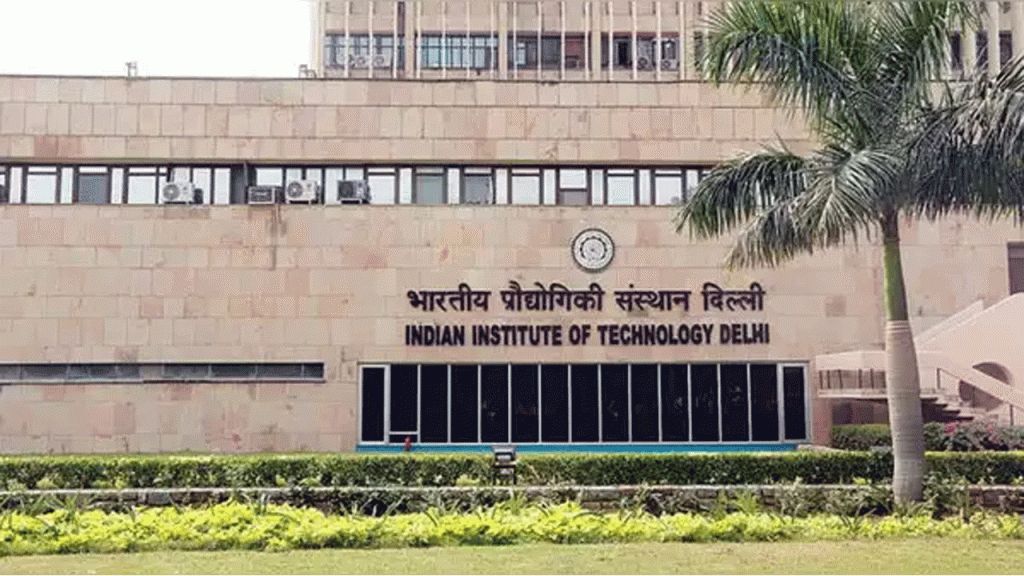On July 13, a demonstration was held at IIT-Delhi’s main gate by student collectives at IIT-Delhi, the Students’ Federation of India, and the Birsa Ambedkar Phule Students Association of Jawaharlal Nehru University, after the recent death Ayush Ashna, a final-year B.Tech student at IIT-Delhi, who belonged to the Scheduled Caste community. The candle march was organised with the aim of seeking concrete measures to make campuses safe for marginalised students.
On July 8, Ayush Ashna, a final-year B.Tech student in Mathematics and Computer Science at IIT-Delhi, was found dead in his hostel room. The deceased student, aged 20, hailed from Bareilly in Uttar Pradesh. According to reports, Ayush was staying at the Udaigiri Hostel on the campus and was enrolled in the institute’s summer course. As per media reports, the police is calling the said incident to be prima facie.
What is the reason for the students’ outrage?
According to a report by The Hindu, the institute’s director informed all of the students and employees of Mr. Ashna’s passing by email, referring to it as a “sad and untimely demise”. However, as per a report by News Minute, the Ambedkar Periyar Phule Study Circle (APPSC), a student’s organisation at IIT Delhi, had issued a statement pursuant to the email, stating that even as Ayush was from a Scheduled Tribe (ST), the institute made no mention of it in their condolence email. The organisation further alleged that this highlights how unwelcoming the institute is for students from Scheduled Castes and Tribes to address “institutional casteism, bullying, and constant questioning of SC/ST students’ merits.”
There was unease on campus once students learned that Mr. Ashna came from a marginalised background, and yet there was no mention of it in the director’s email. On July 12, a condolence gathering was subsequently scheduled by the institute. One of the students, who was a part of the condolences meeting, stated, “The Director’s communication did not even mention that Ayush was a ST student and that his death was a suicide.” Students initially thought Mr. Ashna was an Adivasi, but according to a report in The Hindu, members of the school’s official SC/ST Cell have established that the boy is from a family that belongs to a Scheduled Caste.
Furthermore, as per the Hindu’s report, at the condolence meet, the Dean of Student Affairs said that the only introspection to be done was that “we have to do more”, and the Director Rangan Banerjee said “we need to have a more humane institute”. However, Shainal Verma, the student representative of the SC/ST Cell, said it was important to examine why students from marginalised backgrounds experience the campus so differently and asked the administration what it was doing to address these concerns.
Students from Ayush’s department later expressed disappointment that the institute had not made more of an effort to let people on campus know about the condolence meeting. “Even from the department, there was only one professor as a representative,” one of them said.
Soon after the condolence meeting, senior faculty, including the Director and the Dean of Academics, initiated talks with representatives of the SC/ST Cell, constituted and given a mandate just three months ago, about measures that could be taken to address the issues of the experience of marginalised students on campus, including possibilities of surveying students on campus, as per the Hindu’s report.
Not the first suicide, but will it be the last?
It is essential to note that Ayush’s death has come merely months after the death of Darshan Solanki, a Dalit student of IIT Bombay. Darshan, aged 19, was a chemical engineering student from Ahmedabad, Gujarat, who had died by suicide at the campus on February 12, 2023, a day after his semester exams ended.
After much uproar by the students and citizenry, a 12-member committee was formed at IIT Bombay to investigate the reasons behind his death and a report submitted by them ruled out caste discrimination and alleged that he was upset due to his poor academic performance. However, his father Rameshbai rejected the findings of the report and told the media that he did not trust the committee to bring out the truth as it did not have members from outside the institute.
Only last week, on July 6, the Supreme Court had heard the petition mothers of Rohith Vemula and Payal Tadvi and deemed caste-based discrimination in higher education institutions to be a ‘very sensitive matter’. The matter was being heard by a division bench of Justice AS Bopanna and Justice MM Sundresh. Both Rohith and Payal had faced caste-based discrimination in institutions of higher education, which had led to them dying by suicide. The Supreme Court had sought the University Grants Committee’s (UGC) response, specifying the specifying the guidelines already taken, and planned, by them for creating an enabling environment for students belonging to SC/ ST communities in higher education institutions.
Related:
SC deems caste-based discrimination in higher education system to be a ‘very sensitive matter’
Lessons Unlearned: Nine years after the Thorat Committee report
The Death of Merit: Dalit Suicides in institutes of higher learning
Systemic Prejudice, Absence of Grievance Redressal reasons for Dalit Suicides: Teacher Testimonies
A letter that should shake our world: Dalit scholar suicide triggers outrage
Rohith Vemula’s ‘institutional murder’: Five years on, family and friends still wait for justice
REPLUG: Rohith Vemula, Your Sacrifice was Not in Vain
Mumbai Dharna for Darshan Solanki makes calls for law against caste discrimination
